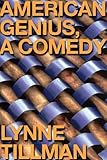

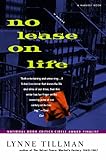 I first met Lynne Tillman at Housing Works, on a night she read with Paula Fox. I brought a first edition of her novel No Lease on Life for her to sign. I’d found the book tucked away in the towering stacks at the Strand, still in pristine condition and with a glossy publicity photo inserted between pages. I recall her saying that she hoped I would enjoy the book. I was almost certain I would. Anything I’ve read by Tillman I’ve devoured, from her first novel, Haunted Houses, which in three separate narratives depicts three young girls coming of age in suburban New York, to American Genius, A Comedy, which recently ranked #19 in The Millions’ end-of-the-decade fiction survey, The Best of The Millennium (So Far).
I first met Lynne Tillman at Housing Works, on a night she read with Paula Fox. I brought a first edition of her novel No Lease on Life for her to sign. I’d found the book tucked away in the towering stacks at the Strand, still in pristine condition and with a glossy publicity photo inserted between pages. I recall her saying that she hoped I would enjoy the book. I was almost certain I would. Anything I’ve read by Tillman I’ve devoured, from her first novel, Haunted Houses, which in three separate narratives depicts three young girls coming of age in suburban New York, to American Genius, A Comedy, which recently ranked #19 in The Millions’ end-of-the-decade fiction survey, The Best of The Millennium (So Far).
More than a year after our Housing Works encounter and over four thousand miles away, I met Tillman again last summer in Lithuania—this time as a student in her fiction workshop at the Summer Literary Seminars. Tillman recalled meeting me before, which says a great deal about her memory as well as her interest in others. Her generosity extended to her workshops where, on the first day of class, she commenced by saying she wanted to be a non-authoritarian instructor. From there, the conversation flowed around her keen insights, benevolent guidance, and grammatical precision. Tillman often dined with students after our morning class, and she met me one Sunday afternoon to talk more about writing.
In person, Tillman’s incandescence defies her petite stature in much the same way that her striking black curls offset her sharp, elegant features. That Sunday, we walked through the cobblestone streets of Vilnius and dined on a patio beside the Vilnia River, where she shared her chilled magenta borscht with me. The interview that follows was conducted over email once we returned to New York, but it grew out of our conversation that day, which touched on writing workshops (she has never taken one), what constitutes “experimental” writing, as well as her own writing.
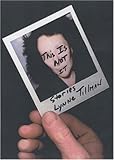
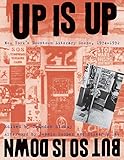 Tillman has been a prominent figure in New York’s Downtown literary scene for decades. Brandon Stosuy’s anthology Up is Up But So Is Down, that chronicles the scene from the mid seventies to the early nineties, includes a conversation between Tillman, author and former bondage model Lisa B. Falour, and poet, filmmaker, and Warhol right-hand-man Gerard Malanga, as well as an excerpt from Haunted Houses and images of many, many hand-drawn fliers for readings bearing Tillman’s name. She co-directed and wrote a film, Committed, in the mid eighties, before she published her first novel later that decade. Her writing has always been intertwined with the art scene; her most recent book of short stories, This Is Not It, consists of stories written in response to works of art.
Tillman has been a prominent figure in New York’s Downtown literary scene for decades. Brandon Stosuy’s anthology Up is Up But So Is Down, that chronicles the scene from the mid seventies to the early nineties, includes a conversation between Tillman, author and former bondage model Lisa B. Falour, and poet, filmmaker, and Warhol right-hand-man Gerard Malanga, as well as an excerpt from Haunted Houses and images of many, many hand-drawn fliers for readings bearing Tillman’s name. She co-directed and wrote a film, Committed, in the mid eighties, before she published her first novel later that decade. Her writing has always been intertwined with the art scene; her most recent book of short stories, This Is Not It, consists of stories written in response to works of art.
Of her most recent novel, American Genius, A Comedy, George Saunders has said, “Out of this voice, as in an elaborate time-lapse photograph, a world is made, a world like ours: flawed, beautiful, sacred insane.” And our own Garth Risk Hallberg, in his Millions review, championed, “Readers eager for plot, dialogue, characters delivered in a single stroke… the sturdy appurtenances of conventional fiction, will have to open themselves to American Genius, to surrender to its magic, to trust. But they will be richly rewarded. And perhaps even changed.” Despite exuberant recommendations from writers as respected and as varied as Saunders, Harry Mathews, and Jonathan Safran Foer, Tillman’s writing remains largely unknown. It has been said that Tillman is a writer who everyone has heard of but who no one has read. I too was guilty of this years ago, when I attended a panel on Proust at the New York Public Library. Tillman sat behind me, and I overheard her name as she was introduced to someone else.
The Millions: You said that you would like to write like Peter Dreher paints. In Dreher’s ongoing project Tag Um Tag Ist Guter Tag (Day by Day Days Are Good), which he began in 1972, Dreher has painted the same empty water glass more than three thousand times. I am wondering what draws you to his approach, considering that in many ways you take an opposite approach to writing, where your style, subject, and narrative structure change with each book. But even so, there’s an essence to your work that remains the same. In what ways, if any, do you embrace Dreher’s approach in your writing, and also, what inspires your drive to invent and reinvent rather than repeat?
Lynne Tillman: I try to shake myself up, and I believe I want to keep moving and changing. But I’m pretty sure I want to avoid self-exposure also. It’s the antithesis of what Dreher does with the glass, which is why I’m so drawn to it. Thinking about the same subject again and again, approaching it slightly differently each time, I see that as peaceful and directed. Still, I’m running mentally, and want to do something I haven’t done. But you’re right, there’s something in my work that stays the same – me.
TM: In your essay “Doing Laps Without a Pool,” included in A Best of Fence: The First Nine Years, Volume 2, you argue that the terms to categorize “experimental” writing have “lost their explanatory power.” You go on to declare that “Unquestioned adherence to any dictates … to any MFA workshop credos, or their antitheses, for a novel, story, poem, essay, will generate competent, often unexciting work, whether called mainstream, conventional, progressive, or experimental; the products will have been influenced by or derived from, almost invariably and without exception, “established” or earlier work, their predecessors.” What literature have you encountered recently, if any, that is attempting to do something interesting, iconoclastic, or new? What is your take on the state of contemporary fiction?
LT: There’s always new material around – brain-directed prosthetic hands; artificially prolonged life; YouTube, etc. Are there new narratives shaped by technology, by changed wants and needs? Entirely new emotions and motives for behavior? How does our consciousness change? That’s what I’m watching for. Transgendering: I’m not sure what will come of this, except what seems obvious already. Tools affect behavior, but basic needs for power, sex, food, and the fear of others? Of extinction and death? Editing the fiction for Fence, I see loads of new writing, and trends – the use of “you” and a very conversational style, as if everyone knows the same joke. I’ll call it “You-cute.” Some critics think American fiction is insular; but that depends in part on what’s considered “American.” What is American writing? American English is changing in part because of non-native-born English or bilingual writers. Assimilation’s not the goal anymore, and language is dramatically affected. Sadly, I’m monolingual. Anyway, I’m drawn to writers with imaginative powers, with the ability to renew language and narrative.
TM: Do you think that the proliferation of creative writing programs has encouraged or increased the generation of “competent, unexciting work”? If so, how should one attempt to create something new?
LT: I don’t blame MFA programs, though I’d like to. But that ignores the world outside MFA programs, and what it’s doing to our minds and ability to conceptualize. If you carry the argument forward, all education destroys young minds, which is what some think anyway. Nothing was better for me than having a few great teachers. There’s probably more writing, and more of the same, but what’s being written is not caused by writing programs. That means students have no agency whatsoever. A writer makes choices; that’s what writing is. If you carry your teacher’s water, that’s a choice. From my POV, a writer’s work is in part resisting moribund ideas, language, complacencies of all kinds. I don’t believe in, First thought, best thought. That was Ginsberg, yes? To be hyperbolic, I might suggest that some of today’s “best literary writers” damage writing more than any MFA program. I won’t go Page Six with this.
TM: I am intrigued by your statement, from which you take the essay’s title: “Writing now is like doing laps without a pool.” I was wondering if you could explain that image. It made me think of Miranda July’s story, “The Swim Team,” where the narrator gives swimming lessons in her apartment because there is no pool in the town where she lives. Her students lie on her floor and place their faces in bowls of water while they practice their strokes. It’s almost as if they’ve adapted swimming to their circumstances, and the purpose becomes the experience, their personal achievements, as well as the community they form. Do you think that writers currently lack a body of readers and/or a general literary culture that keeps writers afloat, or writing with purpose?
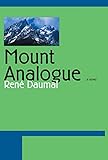 LT: Her story reminds me of surrealist Rene Daumal’s Mount Analogue. People plan an imaginary expedition to an imaginary mountain. He never finished the novel; he died in the middle of a sentence. There’s no body of readers ready and waiting, ever. Hollywood spends millions for those people and produces stupendous failures. Readership is a fluid state. Right now, many of us are thinking anyone who reads is an ideal reader. A general literary culture? Fence, Bomb, Tin House, The Believer, n+1, literary websites like this one, blogs like Dennis Cooper’s, there are many, many thousands of subcultures and scenes where writing is staged. There’s no dominant aesthetic, dogma, theory, or critic determining good, bad, mediocre, right, wrong. I like that. Who trusts anyone enough anyway? But what does determine how one writes? That’s a question writers answer by and with their writing. I’m very curious about why we do what we do, and the forms we use. Writing’s boundaries are mostly artificial, like those of nation states – modernity started with nationalism and nation states. We all have our limits; they could be the limits that need to be pushed in writing. Whatever Kafka wrote about writing, he kept going. Publishing is different from writing; for Kafka, they were distinct. But along with the collapse of the private and public spheres, there’s been a collapse of that distinction, which maybe has more to do with how we write than anything else.
LT: Her story reminds me of surrealist Rene Daumal’s Mount Analogue. People plan an imaginary expedition to an imaginary mountain. He never finished the novel; he died in the middle of a sentence. There’s no body of readers ready and waiting, ever. Hollywood spends millions for those people and produces stupendous failures. Readership is a fluid state. Right now, many of us are thinking anyone who reads is an ideal reader. A general literary culture? Fence, Bomb, Tin House, The Believer, n+1, literary websites like this one, blogs like Dennis Cooper’s, there are many, many thousands of subcultures and scenes where writing is staged. There’s no dominant aesthetic, dogma, theory, or critic determining good, bad, mediocre, right, wrong. I like that. Who trusts anyone enough anyway? But what does determine how one writes? That’s a question writers answer by and with their writing. I’m very curious about why we do what we do, and the forms we use. Writing’s boundaries are mostly artificial, like those of nation states – modernity started with nationalism and nation states. We all have our limits; they could be the limits that need to be pushed in writing. Whatever Kafka wrote about writing, he kept going. Publishing is different from writing; for Kafka, they were distinct. But along with the collapse of the private and public spheres, there’s been a collapse of that distinction, which maybe has more to do with how we write than anything else.
TM: Your most recent novel, American Genius, A Comedy, takes place at an unnamed institution, where some of the residents are searching for “a genuine experience.” It’s a place where “residents hope to make themselves into something or to escape something or themselves, or to realize themselves in a novel guise, and where some seek renown, goodness, or worthiness, while others seek calm, peace, and quiet.” And yet, the institution paradoxically insulates the residents from experience. Helen’s most genuine experience occurs outside of the institution, when she is lost in the woods and she runs into the Count and Contesa. This all seemed to be a commentary on the institutionalization of American life–how there are certain approved routes or routines one follows to achieve certification, learning, or enhancement while at the same time this removes validity from what occurs outside an institution. Were you attempting to critique a growing cultural dependency on institutions?
LT: I suppose my question would be, Is Helen safe from experience? Can anyone be? I was also thinking about safety, post 9/11, when I wrote AGAC. Her world is physically circumscribed; she’s out of the main population. But prisoners build societies inside prison that mimic what’s outside prison. I think of experience broadly, and action, too. I was writing about the institution of democracy, about routines, habits, recurrent memories. The novel’s structured around having the three squares all institutions – including family – are supposed to provide. I was thinking about being certified in relationship to mental illness. But let’s say she’s insulated from surprise. Institutions can function to block surprise, and habit can feel protective. So in that sense, she’s meant to be protected from the outside world, where anything can happen and does. But the unexpected happens even on the “inside” – she surprises herself, for one. Running into the Count and Contesa surprises her. I wanted to surprise.
TM: Oliver Sacks has a fascinating essay about asylums in a recent issue of The New York Review of Books called, “The Lost Virtues of the Asylum.” In the essay, he laments the loss of the benefits of the mental hospital, such as the simplified, narrowed life, and the structure that provided “the freedom to be as mad as one liked” which allowed some patients to “emerge from the depths as saner and stabler people.” He also mentions that little was done to prepare residents for the world beyond the asylum, so that some patients lost the desire or the ability to return to the outside world. Do you think, in the same way, that institutions like the one where Helen resides, have beneficial effects that dually act to make the members dependent, domesticated, and weak?
LT: That’s a great question. I read the essay, too. It’s amazing how ideas shift every 20, 30 years or so – in art, in social engineering — and return and are revised. Asylums can look good now especially compared with mentally ill people living on the streets and shitting in park bushes, and no one able to take care of them. Sacks is a great advocate for difference, for oddness, which is extremely important. But curiously I think what’s appealing now, and why what he’s proposing seems “right,” is that many so-called “normal people” identify with the wish to be as mad as they want and be taken care of. Of course, that’s madness without pain. It’s excruciating to be trapped in a brain that’s out of control, it’s a paralysis and a deadly chaos. Most people have no idea of how painful mental illness is, how it can be like death. But who can take care of people and do it well? Whether they’re mentally or physically ill or very old? That’s the issue. I don’t think most institutions are inherently vicious, except the death penalty. Institutions are people, though, and tricky. I wish we really knew, all things being equal, why some survive and prosper and others don’t, in the same family, say, or a nursing home.
TM: Helen thinks about her seemingly limitless “freedom” as a girl, where “it was assumed I could do what I wanted and be what I hoped for, so then I could and should pursue pleasure, part of my birthright, though as Alexis de Tocqueville wrote of American women in the 19th century, it was that lone, unique freedom which damned them to unhappy marriages.” Do you think that Helen suffers from having too many choices, and that her residency at the institution in some way ameliorates the need for her to make decisions?
LT: What does Helen suffer from? I set out many possibilities, she’s a complex character, the way people are. As we read, we impose ourselves on characters, which makes better characters than most writers write. Interpretation is a weird thing, and within limits it’s impossible to discount most. So much is said about choice in a democracy, but so much about life is determined before birth: Skin color, class, nationality, religion. Which is why there’s that repeated riff – “into which she was born and about which she had no choice.” A person can change big aspects of their lives, leave home, lose or make money, become godless, and I am very concerned with the choices I make, within the range of choice I have – ethics – and also with my various passivities. It’s curious to me why some people are active in some ways and others don’t bother – it’s rare that people refuse to accept things as they are. Most Americans don’t vote. In Holland, you are forced by law to vote. Now that might not be “democratic” to some, or very to others. But that law asserts an idea of what citizenship and society demand. I’m also fascinated by people who actively want to limit theirs and others’ choices. Big and little. Marriage, reproduction, all kinds of prohibitions people want, and exclusions, inclusions. We minutely police ourselves and each other, with glances and headshakings. It seems to me that Helen is in the throes of decision-making every minute of the day at the institution.
TM: So much of American Genius is concerned with repetition; there’s the repetition of the daily activities at the institution, as well as the repetition of Helen’s thoughts. Her thoughts obsessively return to the same topics, such as skin, her Polish cosmetician, her pet cat, Leslie Van Houten and the Manson family, chair design, and the Zulu language, among other things. The following passage establishes a central idea, that everything is cyclical, that nothing goes away, and that everything comes back only with a different face: “History repeats itself, but differently, people repeat themselves, there is a compulsion to repeat, which is not chosen, and few actually appreciate conscious repetition, except psychoanalysts, scientists, salespeople, and shopkeepers, who depend on regular customers and artists, who might find elegance or beauty in it.” Are we destined to repeat ourselves regardless of attempts not to? Should one embrace repetition? I just realized that this touches on Dreher’s series of paintings, (and so now I am repeating myself). Does conscious repetition give one power over it in some way?
LT: Conscious repetition. There’s not too much of it on Helen’s part. The institution repeats itself consciously, serving the same food in a steady rotation. Many people like to eat the same thing for breakfast. Most of what’s repeated is unconscious. People don’t choose their most vivid memories, and I don’t think we can choose to forget, either, though people find ways –- often neuroses do just that. They make us stupid and also able to forget. I think about illusion a lot, people have an illusion of control, and I think repetition does give you some sense that you are in more control. If you do yoga every day, you have more control of your body’s flexibility. But it won’t stop you from getting hit by a car. Or being burned to death in a fire. What I like about what Dreher does is that by painting the same glass, he looks at the same object differently each time, and he does it differently, because he’s noticing it differently, and his hand changes with his eye, or brain. He sees more. I’d like to see more than I do.








